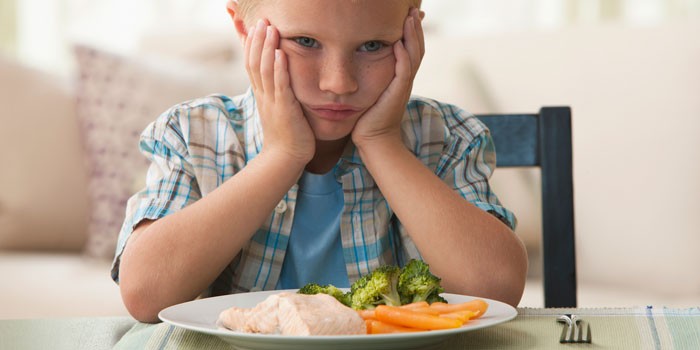
Have you ever noticed that your toddler seems to be in a worse mood after going on a junk-food eating binge, or that your elementary schooler seems calmer and happier when eating a well-rounded diet? If you’ve been researching why are preservatives bad for baby and started investing in more immunity boosting foods for kids at the grocery store each week, you may have already noticed the link between what children eat and their moods and states of mind. Although the food-mood connection for kids may not get a lot of attention, knowing more about it can help you feed your kids the foods they need to feel their best. Here’s what you should know about this interesting connection.
Poor Diet and Nutritional Deficiencies Could Impede Healthy Development
If you’ve skimmed through several Wellements reviews recently, you may have learned that one major way diet can affect kids’ moods is when deficiencies cause developmental issues. Unfortunately, a consistently poor diet can lead to nutritional deficiencies that may impede the normal course of growth, and could lead to mood swings, constant fatigue and even other health problems down the road.
Excessive Sugar or Sweeteners Could Lead To Behavioral Problems
One of the leading causes of behavioral issues in young children is excessive sugar in the diet. Perhaps surprisingly, too much sugar or too many artificial sweeteners can create an addictive reaction in kids and can cause unhealthy and potentially disorienting energy spikes and crashes. If you’ve ever observed your child get a sugar high after eating too many sweets and then suddenly crash and fall into a bad mood, you may be familiar with this pattern. It may be best to limit the amount of sugar your child consumes on a daily basis. Be aware that sugar can be hidden in surprising foods! Consider limiting or rationing out the following foods in your child’s daily diet.
- Candy
- Fruit drinks
- Sugary breakfast cereals
- Instant oatmeal
- White bread
- Sugary condiments
A Balanced Diet Can Help Regulate Mood and Hormones
The simplest way you can ensure that your child maintains a healthy relationship between what they eat and how they feel is to promote a balanced diet filled with whole foods and essential nutrients. This well-rounded approach can help regulate your kids’ hormones and may promote a more stable mood much of the time. To cover all the bases and ensure your little one is getting all the necessary nutrition for a great state of mind, be sure to work the following key food groups into your family’s everyday diet.
- Whole grains
- Proteins such as legumes, meat, eggs or fish
- Fruits and vegetables
- Seeds and nuts
- Pasteurized dairy products
Although you may not always realize it right away, the foods your children eat can make a significant difference in their mood and overall mental and emotional state. If you want your children to enjoy healthy, stable moods, feeding them a balanced and well-rounded diet is absolutely key. Keep an eye out for possible nutritional deficiencies, avoid excessively sugary products and focus on incorporating fresh, whole foods to make the most of your kids’ food-mood connection.
Leave a Reply